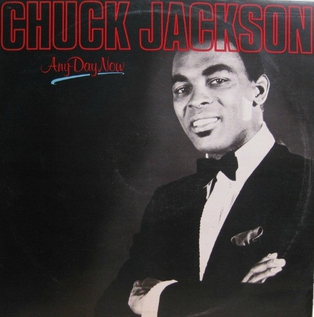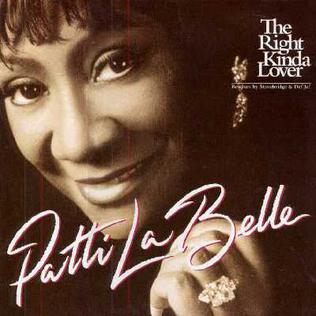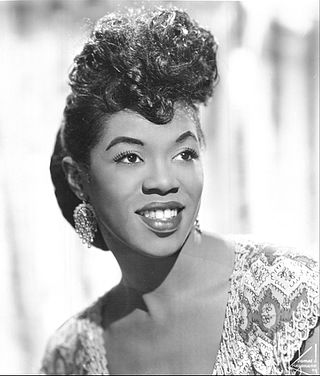Related Research Articles
Bubbling Under Hot 100 Singles is a chart published weekly by Billboard magazine in the United States. The chart lists the top songs that have not yet charted on the main Billboard Hot 100. Chart rankings are based on radio airplay, sales, and streams. In its initial years, the chart listed 15 positions, but expanded to as many as 36 during the 1960s, particularly during years when over 700 singles made the Billboard Hot 100 chart. From 1974 to 1985, the chart consisted of 10 positions; since 1992, the Bubbling Under Hot 100 Singles chart has listed 25 positions.

"Since I Don't Have You" is a song written and composed by Jackie Taylor, James Beaumont, Janet Vogel, Joseph Rock, Joe Verscharen, Lennie Martin, and Wally Lester. It was first a 1958 hit single for the doo-wop group the Skyliners on the Billboard Hot 100. Country music singer Ronnie Milsap had a hit with the song in 1991. American hard rock band Guns N' Roses also had some success in 1994 with their version of the song which reached the top 10 on the UK Singles Chart.

"If You Don't Know Me by Now" is a song written by Kenny Gamble and Leon Huff, and recorded by the Philadelphia soul musical group Harold Melvin & the Blue Notes. It became their first hit after being released as a single in September 1972, topping the US R&B chart and peaking at number 3 on the US Billboard Hot 100.

"Breaking Up Is Hard to Do" is a song recorded by Neil Sedaka, co-written by Sedaka and Howard Greenfield. Sedaka recorded this song twice, in 1962 and 1975, in two significantly different arrangements, and it is considered to be his signature song. Between 1970 and 1975, it was a top-40 hit three separate times for three separate artists: Lenny Welch, The Partridge Family and Sedaka's second version.
"It's All in the Game" is a pop song whose most successful version was recorded by Tommy Edwards in 1958. Carl Sigman composed the lyrics in 1951 to a wordless 1911 composition titled "Melody in A Major", written by Charles G. Dawes, who was later Vice President of the United States under Calvin Coolidge. It is the only No. 1 single in the U.S. to have been co-written by a U.S. Vice President or a Nobel Peace Prize laureate.
"I Only Have Eyes for You" is a romantic love song by composer Harry Warren and lyricist Al Dubin, written for the film Dames (1934) when Dick Powell introduced it. Several successful recordings of the song were made in 1934; later, there were charted versions by The Flamingos (1959) and Art Garfunkel (1975).

"The End of the World" is a pop song written by composer Arthur Kent and lyricist Sylvia Dee, who often worked as a team. They wrote the song for American singer Skeeter Davis, and her recording of it was highly successful in the early 1960s, reaching the top five on four different charts, including No. 2 on the main Billboard Hot 100. It spawned many cover versions.
"He'll Have to Go" is an American country and pop hit recorded on October 15, 1959, by Jim Reeves. The song, released in the fall of 1959, went on to become a hit in both genres early in 1960.
"Trust in Me" is a song written by Ned Wever, Milton Ager, and Jean Schwartz. Popular versions in 1937 were by Mildred Bailey and by Wayne King & his Orchestra.
"There! I've Said It Again" is a popular song written and published by Redd Evans and David Mann in 1941. In early 1945, Vaughn Monroe and his Orchestra released Victor 20-1637, which reached the number one position on the Billboard's National Radio Airplay chart for five straight weeks, then no.2 for six more weeks, and a total run of 29 weeks. It finished 1945 as the no. 4 record of the year.

"Any Day Now" is a popular song written by Burt Bacharach and Bob Hilliard in 1962. It has been recorded by numerous artists over the years, including notable versions by Chuck Jackson in 1962, Alan Price in 1965, Elvis Presley in 1969, Scott Walker in 1973 and Ronnie Milsap in 1982. In the lyrics, the singer predicts the imminent demise of a romantic relationship and describes the sadness this will leave.

The singles discography of American singer Patti Page contains 127 singles as a lead artist, seven as a collaboration with other artists, seven for the Christmas music market and 19 other charted songs. Page's singles were released for nearly 20 years on Mercury Records. Her debut release was 1947's "Every So Often". In 1948, Page had her first charting release with "Confess", peaking at number 12 on the American Billboard Hot 100. Four more singles reached the top 20 or 30 on the chart in the forties decade: "Say Something Sweet to Your Sweetheart", "So in Love", "I'll Keep the Lovelight Burning" and "Money, Marbles and Chalk". The latter also reached number 15 on the Billboard Hot Country Songs chart. In 1950, "I Don't Care If the Sun Don't Shine" became Page's first top ten Hot 100 single. It was followed by her first to top the charts called "All My Love (Bolero)". Also in 1950 came the release of "Tennessee Waltz". It topped the Hot 100 for several weeks, while also reaching number two on the Country Songs chart and her first to reach number one in Australia.

"The Right Kinda Lover" is a song by American singer and actress Patti LaBelle. It was written by Ann Bennett-Nesby, James Harris III, Terry Lewis, and James "Big Jim" Wright, while production was helmed by Jimmy Jam and Terry Lewis, with Wright as co-producing. The song was released as the first single from her LaBelle's 12th album, Gems (1994), and appeared on the soundtrack to the 1994 film Beverly Hills Cop III, starring Eddie Murphy.

"Then You Can Tell Me Goodbye" is a song written by John D. Loudermilk. It was first released in 1962 by Don Cherry, as a country song and again as a doo-wop in 1967 by the group The Casinos on its album of the same name, and was a number 6 pop hit that year. The song has since been covered by Eddy Arnold, whose version was a number 1 country hit in 1968, and by Neal McCoy, whose version became a Top 5 country hit in 1996.
"Reach Out for Me" is a 1963 a song written by Burt Bacharach and Hal David and originally recorded by Lou Johnson. In the US, the original version peaked at number seventy-four on the Billboard Hot 100 the week ending December 7, 1963.
"Funny How Time Slips Away" is a song written by Willie Nelson and first recorded by country singer Billy Walker. Walker's version was issued as a single by Columbia Records in June 1961 and peaked at number 23 on the Hot C&W Sides chart. The song has been featured in several live action films and television shows, such as in the first episode of the second season of AMC’s Better Call Saul and in the 2020 Netflix drama The Devil All the Time.
Patti Drew is an American pop singer who achieved brief success in the late 1960s.
"Right or Wrong" or "Right or Wrong " is a song written and originally recorded by Wanda Jackson, an American country, rock, and Christian music artist. Originally, the song was a major country and pop hit for Jackson in 1961. A second version was released in 1964 that became popular by American pop artist, Ronnie Dove.

The singles discography of American Jazz artist Sarah Vaughan contains 89 singles, two promotional singles and seven other charted songs. Vaughan recorded her first singles in 1946, with her first release being "If You Could See Me Now". Soon after, she saw her first major chart success on the Billboard pop list with "Tenderly" and "It's Magic." Moving to Columbia Records, she had further pop hits in the late 1940s with covers of "Black Coffee" and "Nature Boy." She had her second top ten hit in 1950 with "(I Love the Girl) I Love the Guy." Vaughan moved to Mercury Records during the 1950s and recorded more pop music. At Mercury, she had her biggest chart success, with the top ten hits "Make Yourself Comfortable" and "Whatever Lola Wants." In 1959, Vaughan's single "Broken Hearted Melody" reached number seven on the Billboard pop chart and became an international success, becoming the biggest single of her career.
References
- ↑ "Billboard Hot 100 for week of February 8, 1964". Billboard. Retrieved March 29, 2022.
- ↑ "Evanston Singer, Songwriter's Tune Featured in 'The Butler'". Evanston Review. 3 September 2013. Retrieved 12 April 2014.
- ↑ Whitburn, Joel (2013). Joel Whitburn's Top Pop Singles, 14th Edition: 1955-2012. Record Research. p. 257.